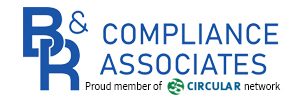FAQs
A Gap Assessment will help you understand your level of compliance with regulatory requirements and industry best practices. Identifying deficiencies now will help your company prioritize corrective actions, mitigating risks to your business.
B&R supports your company and employees by providing expertise and guidance when you need it, without the costs of a full-time employee. Working with our experienced experts provides timely, cost-effective solutions when you are experiencing knowledge gaps, workforce gaps, and role transitions.
NFPA and CGA have documented requirements for proper tank installation. Some of these requirements are regulatory and some are best practice. B&R provides training and ongoing support to help companies ensure they understand and meet these requirements.
Regulatory compliance and proper procedures are essential for running a safe acetylene plant. If you want to ensure the safety of your acetylene operations, contact us for a Gap Assessment today.
B&R Compliance Associates works closely with Spectrum Carbonics, who offers a comprehensive set of services to help you with all aspects of CO₂ sourcing, from initial supply to storage, safety, and compliance. If you have specific CO₂ sourcing needs, get in touch to discuss your requirements and explore how we can assist your business.
